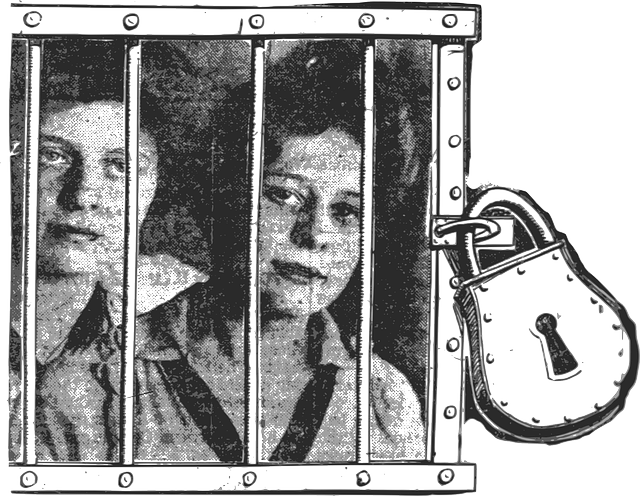Employment Impact Clearing Records are crucial for both employers and employees in a dynamic job market, providing detailed views of professional histories including skills, roles, and alternative transportation options. In today's fast-paced world, commuting is transforming with employers encouraging flexible options like carpooling, public transit, and remote work to reduce congestion and environmental impact. Digital clearing systems offer flexibility and data security for efficient record management, streamlining processes through cloud storage and OCR technology. Alternative transportation options, such as company-sponsored bike sharing and partnerships with transit systems, significantly reduce carbon emissions in urban areas while promoting employee well-being.
Employment Impact Clearing Records is a critical aspect of modern workplace management, offering a comprehensive view of employee transportation choices and their environmental implications. As organizations strive for sustainability, understanding and implementing efficient clearing systems become essential. This article explores the significance of these records, highlighting the need for alternative transportation options in the workplace. We delve into benefits, strategies, and real-world case studies, providing insights to revolutionize your organization’s approach to sustainable employment practices.
- Understanding Employment Impact Clearing Records: A Comprehensive Overview
- The Need for Alternative Transportation Options in the Workplace
- Benefits of Implementing Efficient Clearing Systems
- Strategies to Streamline Record-Keeping Processes
- Case Studies: Successful Clearance Programs in Action
Understanding Employment Impact Clearing Records: A Comprehensive Overview

Employment Impact Clearing Records are an essential tool for businesses and individuals navigating career transitions, offering a comprehensive view of an employee’s professional journey. These records go beyond traditional employment histories by providing detailed insights into various aspects of an individual’s work experience, including roles, achievements, skills acquired, and even alternative transportation options utilized during their time with a company.
This detailed record-keeping is particularly valuable in today’s dynamic job market where professionals often embrace diverse career paths and flexible working arrangements. By examining these records, employers can gain a deeper understanding of an employee’s contributions, making informed decisions when it comes to hiring, retention, and promoting talent. Moreover, individuals can leverage these records to showcase their versatility and adaptability, enhancing their employability across various sectors.
The Need for Alternative Transportation Options in the Workplace

In today’s fast-paced world, the concept of commuting to work is evolving, and employers are recognizing the need to offer more flexible and sustainable Alternative Transportation Options. The traditional reliance on personal vehicles has led to congested roads, increased environmental impact, and challenges for employees, especially in urban areas. Many workers are now seeking greener, cost-effective, and time-efficient ways to get to their places of employment.
By implementing alternative transportation solutions, such as encouraging carpooling, promoting public transit, providing bike storage facilities, or even offering remote work options, employers can contribute to a reduction in traffic congestion and carbon emissions. These initiatives not only benefit the environment but also enhance employee satisfaction and retention by catering to diverse needs and preferences, ultimately fostering a more inclusive and modern workplace culture.
Benefits of Implementing Efficient Clearing Systems

Implementing efficient clearing systems offers numerous benefits for both employers and employees, especially in light of the growing need for flexible work arrangements. One significant advantage is the improved convenience it provides. With efficient processes in place, individuals can easily manage their records and documents from anywhere, reducing the time spent on manual, paper-based tasks. This flexibility is particularly beneficial for those relying on alternative transportation options, such as biking or public transit, allowing them to streamline their daily routines without compromising productivity.
Furthermore, these systems enhance data security and privacy. By digitizing and centralizing records, organizations can ensure that sensitive information is protected from unauthorized access. This becomes increasingly important with the rise of remote work, where employees may use personal devices for professional tasks. Efficient clearing systems enable better control and monitoring of data, thereby reducing potential risks associated with document management.
Strategies to Streamline Record-Keeping Processes

In today’s digital era, streamlining record-keeping processes is crucial for clearing employment impact records efficiently. Organizations can adopt several strategies to enhance this process. One effective approach is implementing cloud-based storage systems, allowing for secure and centralized access to documents. This reduces the time spent searching through physical files or scattered digital folders. Additionally, employing automated data entry systems can significantly speed up record creation and update procedures.
Another valuable strategy involves digitizing paper records using Optical Character Recognition (OCR) technology. OCR enables quick extraction of text from scanned documents, making it easier to organize and search through old records. Furthermore, integrating these systems with Alternative Transportation Options, such as remote data access via secure apps or automated alert systems for record updates, ensures that employees can retrieve necessary information promptly, fostering a seamless clearing process.
Case Studies: Successful Clearance Programs in Action

In the realm of employment impact, clearing records has emerged as a game-changer, especially in urban settings where bustling metropolises grapple with traffic congestion and environmental concerns. Successful case studies across various cities highlight innovative approaches to streamlining transportation, offering alternative options that benefit both employers and employees.
For instance, some forward-thinking companies have implemented company-sponsored bike sharing programs, encouraging employees to opt for cycling as a green mode of commuting. This initiative not only reduces carbon emissions but also fosters a healthier lifestyle among staff members. Similarly, partnerships with public transit systems have proven effective, providing discounted or shuttle services tailored to the needs of specific industries. These alternative transportation options not only alleviate traffic congestion but also contribute to creating a more sustainable and vibrant urban landscape.
Employment Impact Clearing Records offer a powerful tool for modern workplaces, streamlining operations and promoting sustainable practices. By adopting efficient clearing systems, organizations can reduce their carbon footprint while implementing alternative transportation options. The case studies presented demonstrate that strategic record-keeping processes not only enhance operational effectiveness but also contribute to a greener future. Embracing these strategies is a step towards revolutionizing workplace dynamics, ensuring a more sustainable and productive environment for all.






